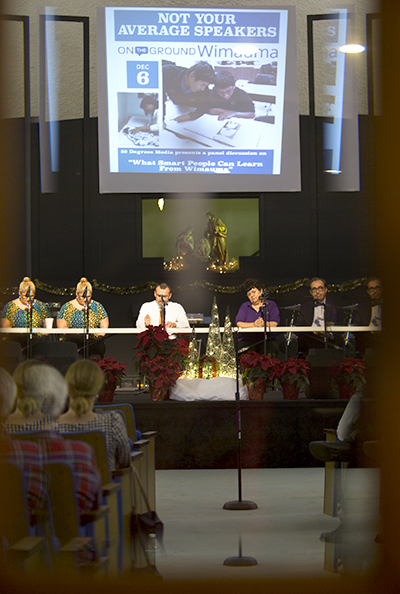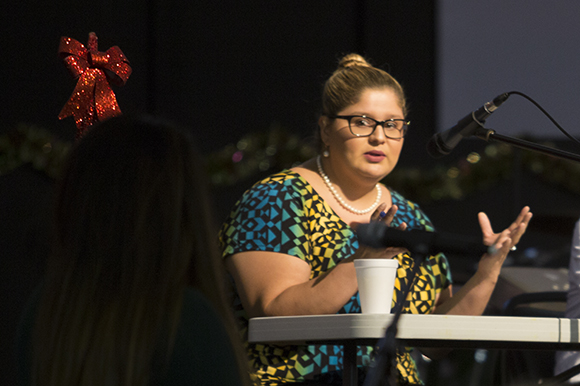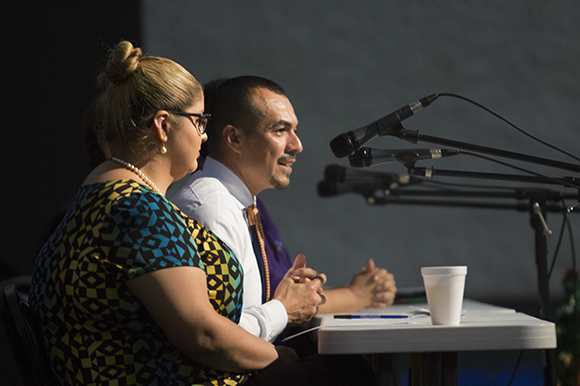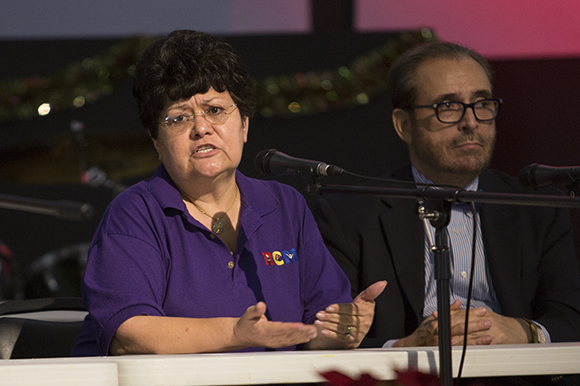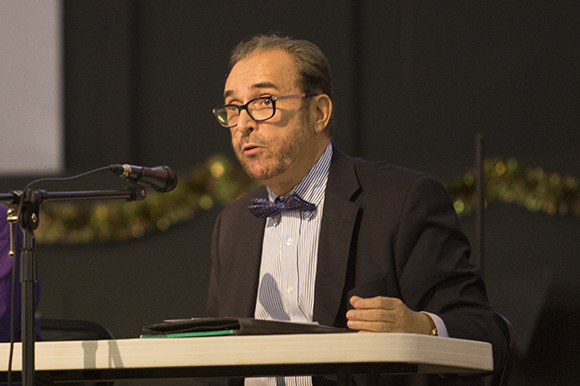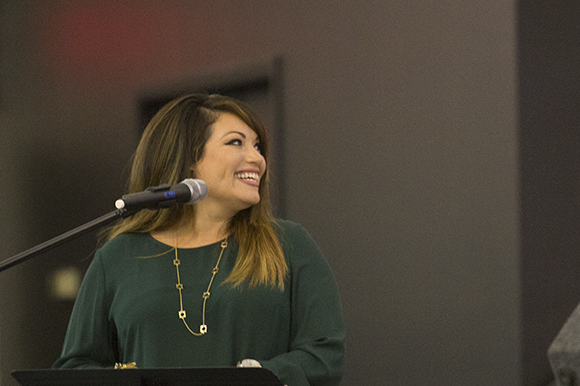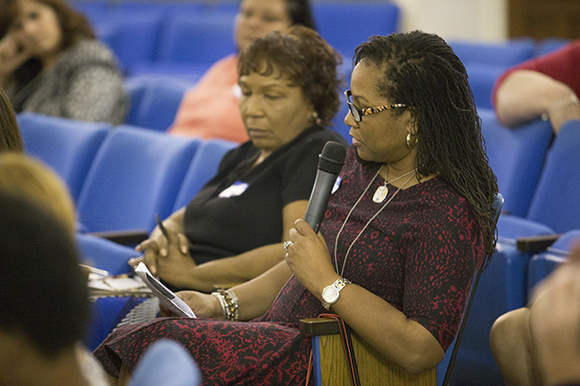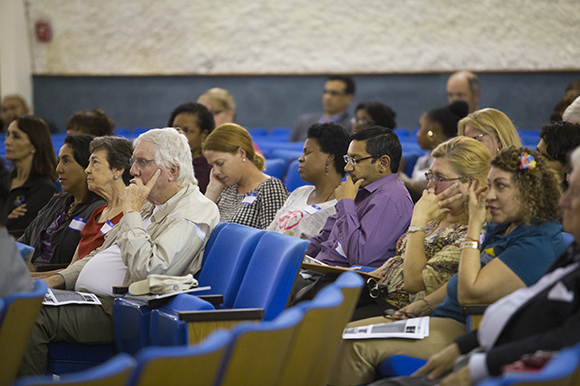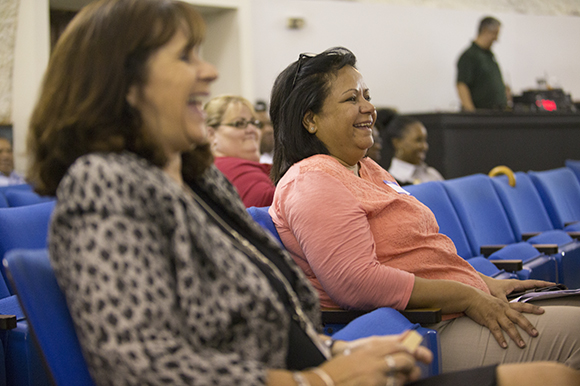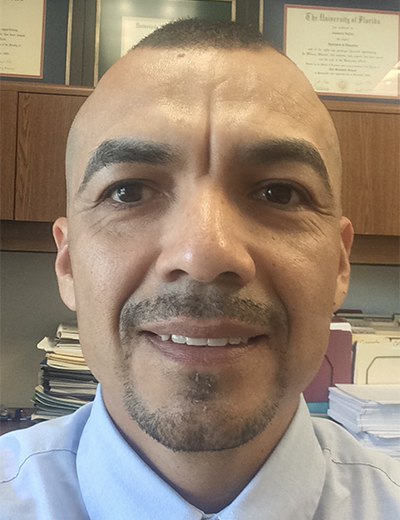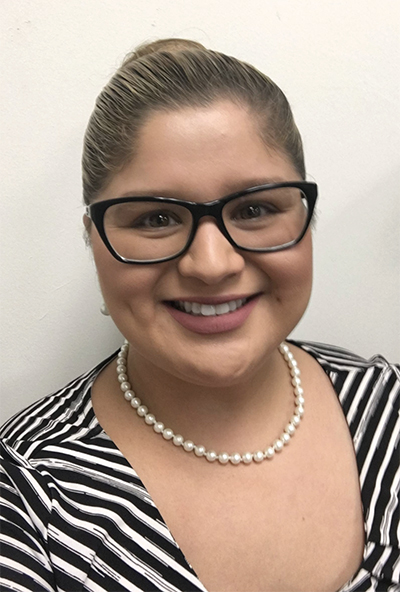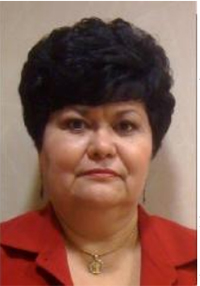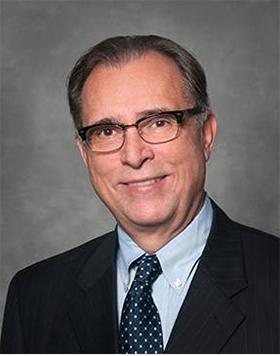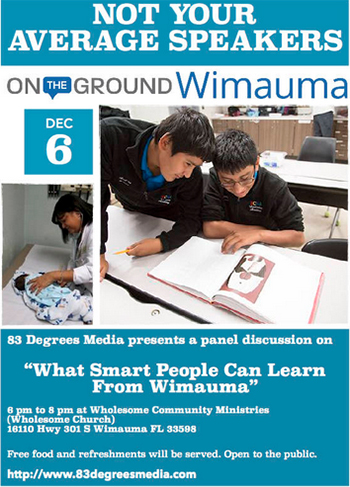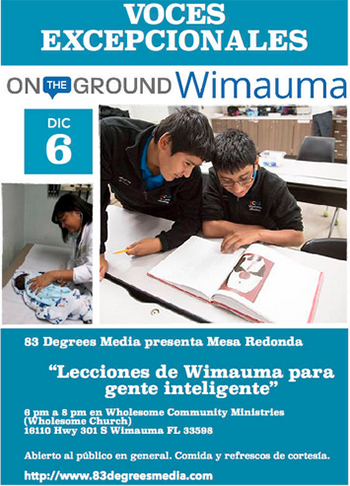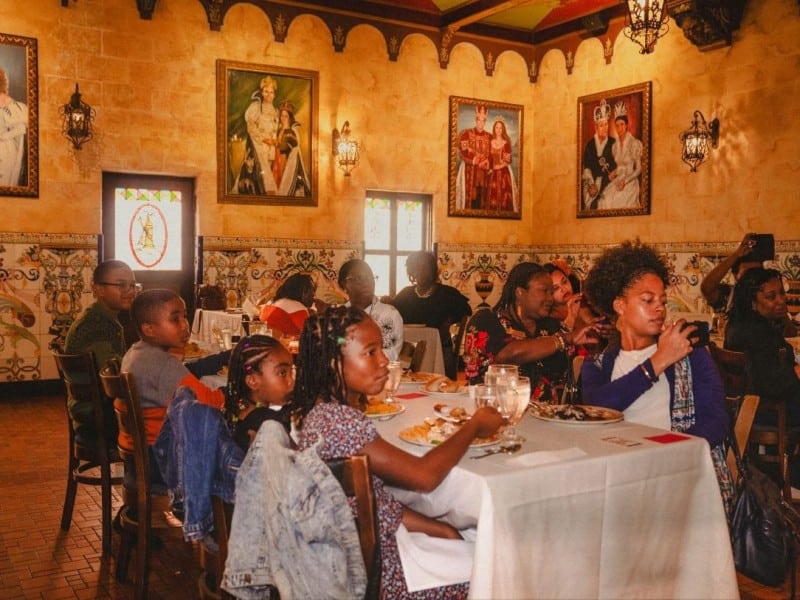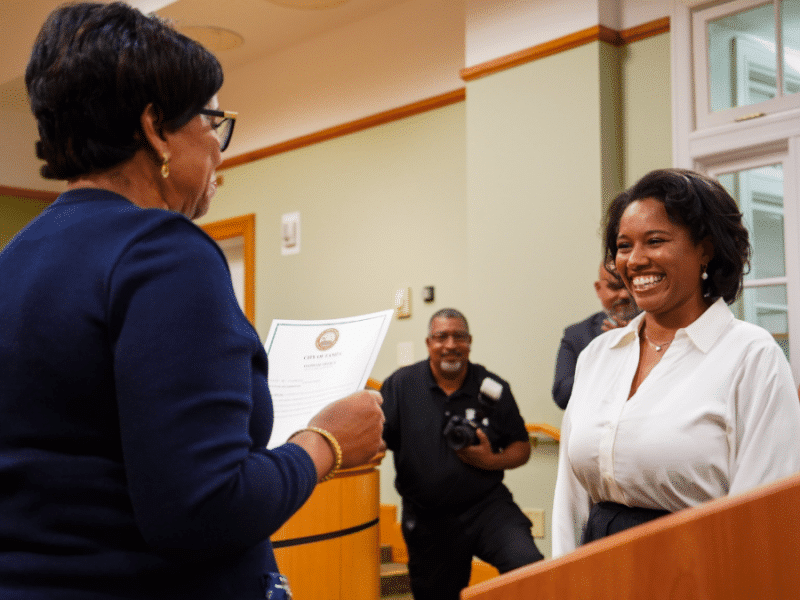Seeking a united front in Wimauma: Not Your Average Speakers On The Ground in Wimauma
Not Your Average Speakers: Political clout, unity, education and job training are key to shaping the future for Wimauma residents, a diverse mix of immigrants, Hispanics, blacks and whites, as development encroaches on the rural community in South Hillsborough County..
To read this story in Spanish, please follow this link.
In any town where close to 40 percent of the population lives in poverty, there are always challenges.
But in Wimauma, a rural area of South Hillsborough County about 30 miles southeast of downtown Tampa, there is great potential for positive change and new opportunities, especially as greater attention is paid to the needs of residents and how they fit in with the larger community.
Tuesday evening (Dec. 6, 2016), 83 Degrees Media hosted a Not Your Average Speakers panel discussion to examine “What Smart People Can Learn From Wimauma’’ as part of its ongoing On the Ground storytelling project.
The event, held at the Wholesome Community Ministries church, brought together residents and advocates from several organizations working to support the Wimauma community.
Three of the panelists — Julia Sarmiento, Ansberto Vallejo and Lourdes Villanueva — grew up in Wimauma, and shared their first-hand understanding of the challenges facing migrant farmworker families as well as their professional perspectives from their current roles in public education.
The fourth panelist, Dr. Allen Witt, President of the Hillsborough Community College (HCC) SouthShore Campus, discussed his views on the impact of higher education on Wimauma.
Because the panelists are all education professionals, the discussion revolved mostly around this important topic as the best solution for shaping the future of Wimauma.
Culture: A double-edged sword
Lack of familiarity and current family economic pressures often serve as impediments to seeking higher education. Obstacles arise from a complicated combination of math and culture, several of the panelists noted.
Ansberto Vallejo, Supervisor for Career and Postsecondary Planning for Hillsborough County Public Schools, explained that there is an expectation among many of the Wimauma families, particularly the Latino farmworkers, that each child contribute to the immediate economic stability of the family. Leaving to study is hard on family ties, he said. It means that person is “no longer contributing to the family … your bucket of tomatoes will no longer help pay the water bill or the electric bill. It is a double-edged sword.”
Lourdes Villanueva, Director of Farmworker Advocacy for the RCMA, agrees with the sword analogy and says the tight family culture is important.
“That is what held my family together,” she noted. “We need to value what [the Latino family culture] brings – where they come from, but we also need to bring the parents to the other side.”
She says teaching parents about the importance of higher education, and starting that conversation early, is just as important as educating the children.
“Everybody wants to do better for their kids, there is no exception there,” she said.
Lack of transportation has been another major challenge for potential college students, as was the case for panelist Julia Sarmiento, Social and Emotional Learning Coordinator for Hillsborough County Middle Schools, who at the time had to get from Wimauma to classes at HCC campuses in Ybor City and on Dale Mabry Highway — a distance of about 35 miles. That issue has been somewhat alleviated with the opening of HCC SouthShore Campus in 2008, which is much more convenient because the campus is located about 5 miles from Wimauma, says Witt.
Cultivating additional options
“I tremendously honor the people that go to the field every day,” commented Witt. “But every year there will be less tomatoes and less crops. This does not mean that [kids] won’t work in the fields or won’t help their parents, but it does mean that they need other options.”
Witt says he wants to see the SouthShore campus train Wimauma students “so that by the time they are 21 years old, they have technical or vocational training so they can get a job in the economy.”
To this end, he sees several of the HCC SouthShore offerings as addressing the needs of the growing local economy, including emergency medical and nursing, childcare and criminal justice.
He says HCC is looking into expanding medical-related training and adding engineering professions. He is also petitioning Florida’s governor to construct a Career Transition Center at in the SouthShore area. During Tuesday’s discussion the suggestion was made that the campus offer a culinary degree, which Witt says he is already investigating.
However, he also noted that there is flexibility available to students while earning their associate’s degree at HCC — that they can continue to support their families while studying by taking advantage of evening or weekend classes.
There are also many options available to cover the costs of higher education. Witt says that for most students graduating from Lennard, the high school that serves Wimauma, there should be “very little or no cost to your families.”
“If you are a low-income legal resident, you have access to Pell Grants that pay for books, all of your tuition and a percentage of the money you need to live on,” explains Witt. “If your family makes more, and you are not eligible — there are low interest loans. Plus individual scholarships — some available to people who are not legal residents.”
“There are millions and millions of dollars that go unused,” says Vallejo. “Not everyone knows how to access federal aid and dollars. Our office is working with the different communities that could benefit from the federal assistance programs.”
Unity, action and leadership
Several other themes were touched upon during the panel discussion — from the need for a community center and affordable housing to concerns over new high-priced residential developments in the area.
However, what emerged as critical to addressing these issues was the importance of Wimauma becoming a unified force with political clout. The goal should be to bring together not just the Latino and farmworker residents, but embracing all of its residents — Mexican-Americans, non-Mexicans, black, white and Asian — to find solutions for the youth of the community.
Key to this is finding and developing leadership — all of the panelists pointed to teachers and other community leaders that have shaped the youth and contours of Wimauma — and then activating this.
“Poverty has no color,” said attendee Manny Rivera, Executive Director of The Jim Walter Partnership Center at the University of South Florida, who says the community needs to figure out the leadership opportunities. “When communities are organized, then voices are heard and decisions are made. … We need to figure out the diversity of our community, we’ve got to move from talk to action.”
Also in the audience was Rosy Bailey, Interim Director of the Puentes de Salud/Hispanic Services Council project, a community health initiative underway in Wimauma for several years, who says conversations like these are important “so that people know they are not alone and that if one can overcome challenges, many can.”
“The number one priority is to listen to the community and come up with community-based solutions, not community-placed solutions,” says Bailey. She says that not only do residents need to unify, but the various organizations that are working in Wimauma need to come together. “Collectively, we can make a bigger impact. … A united front is so important for the overall success of Wimauma.”
To see additional video clips from the Not Your Average Speakers event On The Ground in Wimauma, visit the 83 Degrees Media YouTube channel by following this link.
To read more stories from the 83 Degrees Media On The Ground storytelling project, follow these links for English and for Spanish.
The 83 Degrees Media On The Ground storytelling project is supported by Allegany Franciscan Ministries.
To subscribe to our free weekly e-magazine, follow this link.

